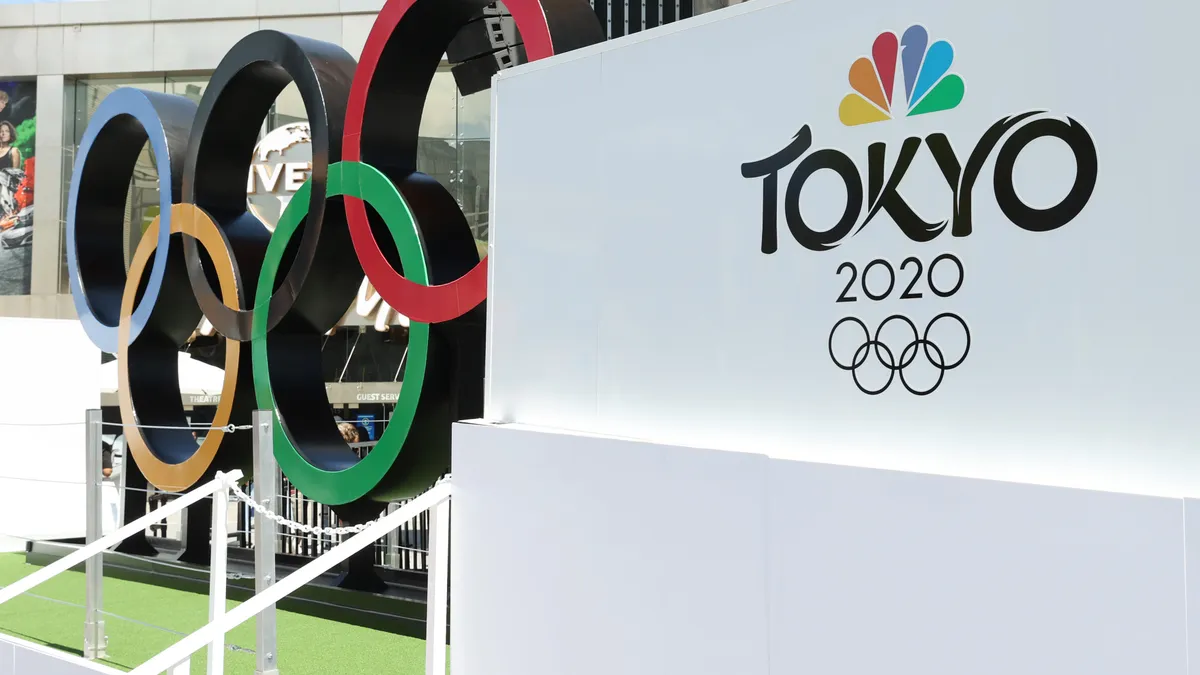Dive Brief:
- NBCUniversal's coverage of the Tokyo Olympics was considered by many viewers to be too fragmented, leading to the broadcast's lowest ratings since NBCU acquired U.S. media rights to the summer games in 1988, per a report by The Wall Street Journal.
- Viewers cited obstacles in navigating the broadcast across different channels, particularly NBC's over-the-top (OTT) product, Peacock, and found it difficult to tune into live events, according to the Journal. TV viewership was down 42% compared to the 2016 Olympics in Rio de Janeiro.
- Viewer confusion about NBCU's wide-spanning broadcast comes despite the company's efforts to streamline its omnichannel ecosystem, potentially altering how NBCU offers ads for major broadcasts in the future.
Dive Insight:
Despite making moves to strengthen its omnichannel ecosystem, NBCU proved to be too fragmented in its coverage of the Tokyo Olympics, confusing consumers and leading to the broadcaster's lowest-ever Olympics' ratings. While viewership was forecast to be low due to the continued threat of COVID-19 and the lack of live spectators, viewer frustration was more bad news for NBCU after a disappointing two weeks.
Due to the lower-than-expected ratings, some advertisers hope to receive discounts on ads in future NBC-broadcasted events, per the report. Notable upcoming events include the Winter Olympics in Beijing, which begin in February, and the Super Bowl. The latter event saw disruptions to CBS' broadcast this year when traditional advertisers decided to reinvest their spend in COVID awareness campaigns. As for next year's game, which will be broadcasted by NBC, advertisers are buying up spots, but the continued spread of COVID-19 could possibly pose obstacles for the network.
By attempting to broadcast across cable, connected TV, social, numerous digital channels and more, NBCU may have focused too much attention on dominating the airwaves rather than ensuring consumers knew how to navigate those offerings. Streaming on Peacock, for example, posed a raft of unnecessary difficulties, including missed events, paywalls and a complex viewing guide, per The Verge. An official complaint thread was started on Reddit to voice some of these concerns, and had 8,100 comments by press time.
Leading up to the games, NBCU made efforts to streamline its broadcast. One Platform, the company's omnichannel media buying ecosystem, was supposed to allow advertisers to meet consumers' increasingly varied viewing habits while consolidating a cross-channel buying process in one place. Furthermore, the broadcaster adopted Ad-ID, a tool aimed at helping marketers deliver less frequent, more high-quality ads. That an omnichannel broadcast confused viewers could affect how NBCU delivers its ad-buying system for the Olympics and other large-scale events in the future.
Seeing that OTT proved frustrating to consumers is particularly disappointing to NBCU considering the company hoped the platform would help lead this year's broadcast. NBCU tapped ad tech company Innovid just over a week before the games to manage ads through its connected TV apps, NBC Sports and Olympic Channel: Home of Team USA. Without sufficiently simplifying its platforms, the broadcaster could have been too hasty in satisfying marketers' increasing reliance on the channel.
Another issue that exacerbated cross-channel disorganization was the time delay used to broadcast to viewers in the U.S. the events that occurred previously in Tokyo, which is 11 time zones ahead of New York City, per the Journal report. The delay obstructed viewers who hoped to watch the games live, which could have been especially frustrating considering the role that social media plays in providing updates on real time events regardless of geographic location.
As streaming and other digital viewing options continue to increase in popularity amongst consumers, the Olympics news points to the challenges facing broadcasters as they try to effectively meet viewers where they are while also delivering the kind of ratings that will attract ad dollars.















